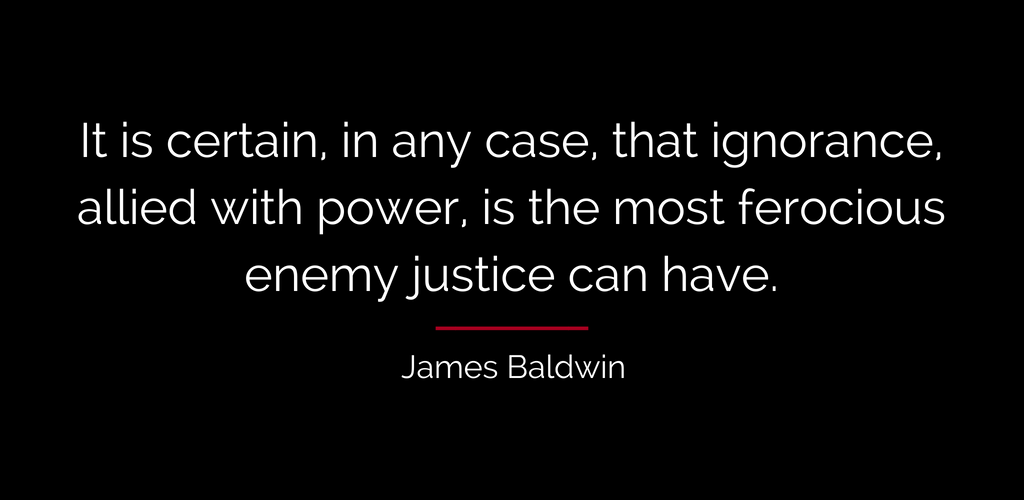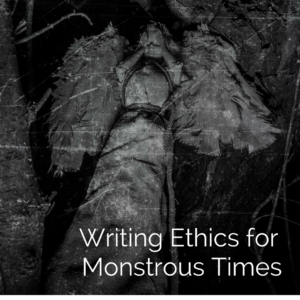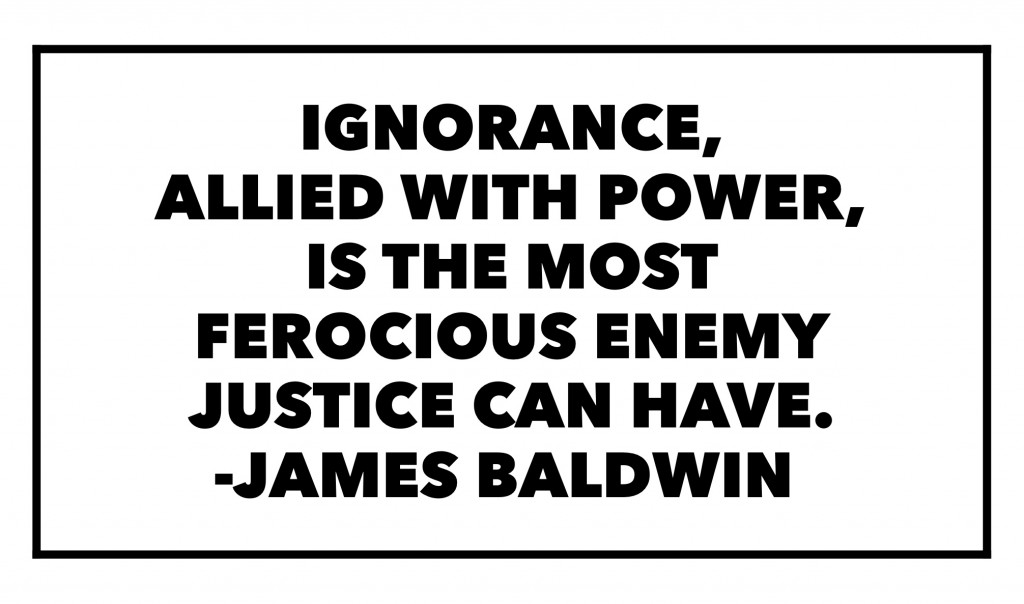Some of you know that I live in Fort Collins, Colorado, but only those of you who are bored enough to read my C.V. know that I worked at Colorado State University for seven years. When we first moved here in 2007, none of our family and friends knew where Fort Collins was. Then “Ballon Boy” hit the news and our new town became famous for a ridiculous prank. Now my adopted hometown is in the news again, but this time it’s because CSU is joining the ranks of places where people of color are unwelcome.
Two weeks ago two brothers drove up to Fort Collins to participate in a campus tour of CSU, a school they described as their “dream school.” They saved their money for the trip, registered online for the tour, and borrowed the family’s only car for the trip. The only thing they did wrong, was arrive late for the tour. Oh yeah, and not be white.
So even if you don’t know the story, you can probably guess what happens next. Someone calls the cops. And of course that someone is a white woman. What possible excuse could she have for calling the cops on two kids who showed up late to a campus tour? She said they made her “nervous” (not a reason to call the cops, by the way), and her call to campus police tells us everything we need to know about why:
Hi … I am with my son doing a campus tour … There are two young men that joined our tour that weren’t a part of our tour. They’re not, definitely not a part of the tour. And their behavior is just really odd, and I’ve never called, ever, about anybody, but they joined our tour. They won’t give their names and when I asked them what they were wanting to study, like everything they’re saying isn’t … they were lying the whole time.
The odd behavior she refers to is that the brothers are quiet and one of them keeps his hands in his pockets. That’s it. If that’s odd behavior for college age students, then I should have called the cops on at least one student in every damn class I ever taught. But it’s not their behavior that gets the cops involved. It’s that they refused to answer the nice white lady’s questions. These young men didn’t think they needed to justify their existence to her, and because of that they get pulled off the tour and questioned by the police while she goes on her merry way with those “creepy [brown] kids” safely out of view. (Yes, she actually called them creepy.) She even admits her call is not justified:
It’s probably nothing. I’m probably being completely paranoid with just everything that’s happened …
I can’t be certain what she means by “everything that’s happened,” but it’s a pretty safe bet she’s referring to America’s epidemic of mass shootings. However, her racism is blocking one key fact about those shootings from taking hold in her brain: they are overwhelming committed by white men, and these two young men are Native American. But of course, she doesn’t know they are Native American, just that they aren’t white. When the 911 dispatcher asks her to describe the brothers she says
I think they’re Hispanic, I believe. One of them for sure. He said he’s from Mexico.
No lady, they’re from NEW Mexico. The state that borders Colorado to the south. Not Mexico, but the land we stole from Mexico and the indigenous people that lived there long before you and your army of police arrived to make this whole region a whitopia.
What’s infuriating and frightening about this incident is how common it is. There are so many examples of white people calling the police on Black and Brown people that I can’t keep track of them all. People have been harassed while shopping for prom or for a vintage 70s outfit, while barbecuing in a public park, napping in their college dorm, moving into their apartment, moving out of their AirB&B, golfing, working out, and of course while sitting in a Starbucks. And this isn’t even half of the incidents in the news in the last few weeks. I’ve been trying to write this post for days, but every time I open up my computer to work on it there’s a new story of white fuckery I have to take in.
Of course, CSU issued an apology/statement after the harassment these two prospective students received. And honestly, it’s better than most, but the bar is low. University President Tony Frank is clear that the brothers did nothing wrong and that CSU is a place that values diversity.
Two young men, through no fault of their own, wound up frightened and humiliated because another campus visitor was concerned about their clothes and overall demeanor, which appears to have simply been shyness. The very idea that someone – anyone – might “look” like they don’t belong on a CSU Admissions tour is anathema. People of all races, gender identities, orientations, cultures, religions, heritages, and appearances belong here. As long as you want to earn a great education surrounded by people with the same goal who come from every part of our state, our country, and our world, then you belong here. And if you’re uncomfortable with a diverse and inclusive academic environment, then you probably have a better fit elsewhere.
The problem with Frank’s statement on the incident is that it puts all the focus on the the Native American men who did nothing wrong and makes it their job to help the university improve campus procedures to more clearly identify tour participants. What about the white woman who called the police in the first place? Is anyone talking with her? Is anyone from the university calling her in so she can learn why what she did is racist and life threatening to people of color? The way to prevent things like this from happening again is not better tour procedures like making participants wear lanyards (something emphasized in Frank’s statement). The way to keep white people from calling the cops is to make them less racist.
In his statement, Frank says to prospective students and their families, “if you’re uncomfortable with a diverse and inclusive academic environment, then you probably have a better fit elsewhere.” So the message is “It’s OK to be racist as long as you don’t do it here,” and its implication is that the people of Colorado State are immune from racism as long as they can keep the racists off their property. It shoud go without saying that this is not the message we should be getting from an educational institution that claims to value diversity. Colorado State, it’s time to get your white people and start doing the hard work of antiracism education.
President Frank, you have a Vice President for Diversity, whose office runs dozens of programs, and countless faculty members researching and teaching diversity and antiracism. Use these resources to start educating all prospective and current white students. Call them in and tell them that preventing racism is their responsibility. In the meantime, you can send Megan Izen’s guidelines on when to call the police to that white woman CSU is shielding from public scrutiny. Here’s a pocket checklist she can carry with her to remind her of the rules:
Should I call the cops?
- Is my or someone else’s life in imminent danger?
- One more time, am I absolutely certain that the situation is life threatening?
- If the people that are involved were white, would I still call the police?
- Is there anyone else I can call or any other resources available to address the situation?
So in short, “If there is gushing blood or flames, dial 911. But don’t default to the police if you are just uncomfortable.”
President Frank, CSU has the resources and the power to promote real and lasting change, but only if it has the courage to call out racism when it happens and call in white people who need a course of study in white privilege. You end your letter by asking the CSU community “to be a little kinder, a little better, to work a little harder at seeing each other’s point of view, and to use our voice. Not always to agree, but always to defend each other and to oppose hate,” but that’s not even close to enough. This is not about the CSU community being kinder or opposed to hate (because who will disagree with kindness and opposition to hate). This is about creating programs that work to dismantle the white privilege you claim to be working on in your own self. This is about being an educational institution of courage and conviction.

 My writing practice has gone off the rails and getting back on track has been an enormous struggle. I am tired, and angry, and sad. Every day I wake up, look at my phone and greet the day’s tragedy or injustice. A bombing. A shooting. Another sexual predator exposed. Another assault on our democracy by Congress and this monstrous presidency. It’s exhausting. And I’m white, straight, cisgendered, and middle class and thus reasonably sheltered from the fallout. I’m one of the lucky ones.
My writing practice has gone off the rails and getting back on track has been an enormous struggle. I am tired, and angry, and sad. Every day I wake up, look at my phone and greet the day’s tragedy or injustice. A bombing. A shooting. Another sexual predator exposed. Another assault on our democracy by Congress and this monstrous presidency. It’s exhausting. And I’m white, straight, cisgendered, and middle class and thus reasonably sheltered from the fallout. I’m one of the lucky ones.
